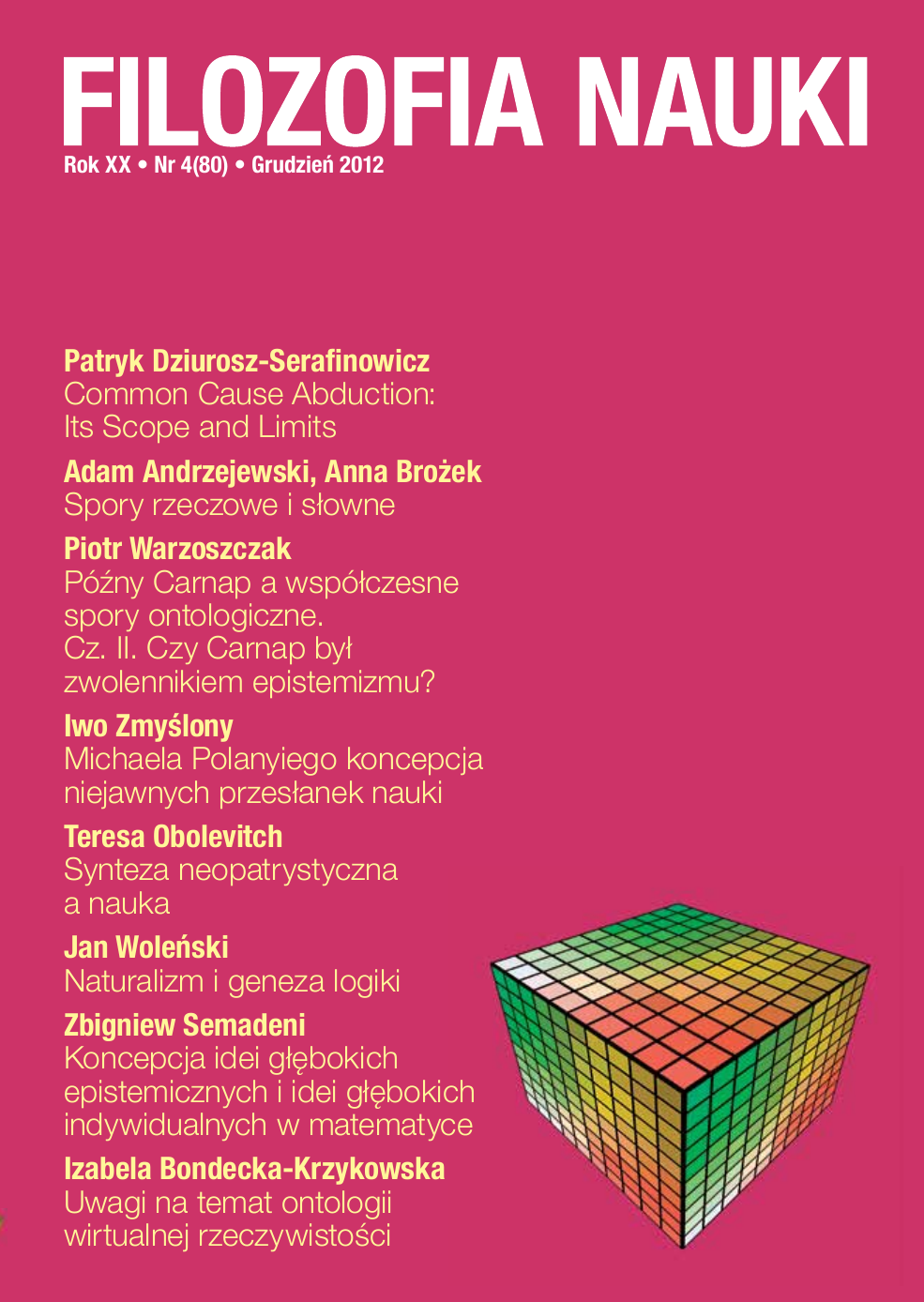A Neo-Patristic Synthesis and Science
Keywords:
neo-patristic synthesis, science, theology, Georgy Florovsky, Alexei NesterukAbstract
The article presents Fr. Georgy Florovsky’s conception of a neo-patristic synthesis (developed by other orthodox theologians) and discusses some polemical aspects of this project. The neo-patristic synthesis is an approach to development of the patristic thought in the contemporary world and application it to the different branches of knowledge, including science. According to Florovsky science has an imperfect character, because to know the empirical world is possible only from the theological point of view. This position is shared by Alexei Nesteruk who claims that the patristic solutions can be treated as a model for the issues of relationship between science and religion. In this way a postulate of the methodological independency of science is breached. We show that this position is also is not accordance with the patristic thought because the Fathers of the Church were very open towards to the intellectual heritage of their time. Although they stressed that secular knowledge is inferior to theology, nevertheless this statement should be taken in the broad historical context of the defense of Christianity. Eastern Christian attitude to science is very sensitive for the transcendence and takes into account the anthropological dimension. In the conclusion we admit that these aspects of the patristic approach can be useful for the reflection about relationship between science and religion, under the condition that they will not break the principle of the methodological naturalism.Downloads
Published
2012-12-01
How to Cite
Obolevitch, T. (2012). A Neo-Patristic Synthesis and Science. The Philosophy of Science, 20(4), 87–103. Retrieved from https://fn.uw.edu.pl/index.php/fn/article/view/698
Issue
Section
Articles















 Filozofia Nauki/The Philosophy of Science | ISSN 1230-6894 | e-ISSN 2657-5868
Filozofia Nauki/The Philosophy of Science | ISSN 1230-6894 | e-ISSN 2657-5868